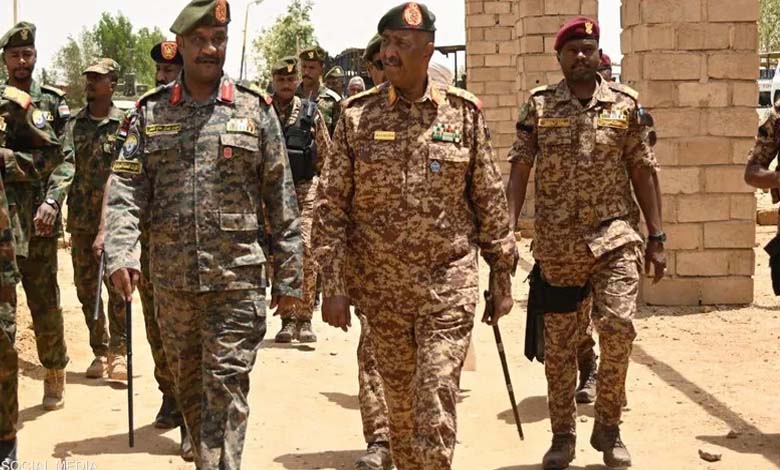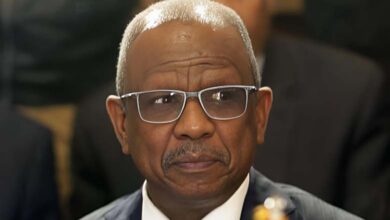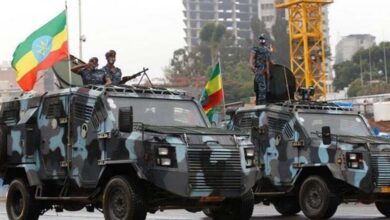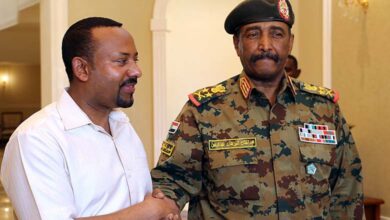Attempted Assassination of al-Burhan: Internal and External Escalation in Sudan?
Attempted Assassination of al-Burhan: Internal Conflict and International Analysis

Amid the ongoing conflict in Sudan, the attempted assassination of the Chairman of the Sudanese Sovereignty Council, Abdel Fattah al-Burhan, has emerged as a surprising event that has sparked widespread debate in local and international media. This attempt was not merely a passing incident; it triggered a series of reactions and speculations regarding the parties involved, both on the internal and regional fronts. Here, we highlight the key aspects of this event and analyze its various impacts.
Allegations of Foreign Interference
Since the news of the assassination attempt spread, accusations have escalated, implicating regional countries in this act. Reports have pointed to support from regional countries for the Rapid Support Forces, allegations that have been repeated across several media platforms, most notably in the “New York Times.” Although these claims are not based on conclusive evidence, they have fueled speculation about external involvement in the Sudanese conflict, especially given the complex relationships between the regional parties involved in the Sudanese issue.
Sudanese Interpretations: al-Burhan and the Military’s Position
On the Sudanese side, reactions have been sharp. Local newspapers reported al-Burhan‘s statements after the assassination attempt, insisting that the military would not back down until victory is achieved. These statements reflect the strength of the Sudanese army’s position and its determination to continue the fight until the end. This suggests that the assassination attempt might be part of an intense internal conflict, where the military seeks to affirm its control and solidify its position in the face of increasing challenges.
Qatari Analysis: The Failure of External Support to the Rapid Support Forces
On the other hand, Qatar’s “Al Jazeera” network approached the attempt from a different angle, citing analysts who believe that the assassination attempt reflects the failure of the significant support received by the Rapid Support Forces. This perspective raises questions about the effectiveness of external support received by one of the conflict parties and its impact on the dynamics of the ongoing war in Sudan.
The Role of Islamic Factions in the Assassination Attempt
According to sources close to the matter, the assassination attempt on al-Burhan may be part of a deeper internal conflict involving the Sudanese military and the Islamic movement. These sources suggest that these factions opposed al-Burhan‘s participation in the Geneva peace talks, considering that this participation could lead to concessions detrimental to their interests. This hypothesis supports the view that the assassination attempt is an internal maneuver aimed at preventing any international rapprochement that could alter the balance of power in Sudan.
Fabricated Events: Hindering International Efforts for Peace
Some analysts agree that the assassination attempt on al-Burhan may be a fabricated event by factions within the Islamic movement, aiming to obstruct international efforts to resolve the Sudanese crisis through the upcoming Geneva talks. This theory is based on the desire of certain parties to maintain the status quo and their refusal of any settlement that might reduce their influence or threaten their existing interests.
-
The Muslim Brotherhood and the Sudanese Army: A History of Rumor-Mongering
-
Sudan: Al-Burhan Rejects Dialogue Initiatives
Allegations About Key Figures and Their Role
Amid these developments, claims have surfaced regarding the targeting of Yasser Al-Atta, one of Sudan’s prominent military leaders, due to his ongoing criticism of certain countries, according to journalist Abdel Hamid Qutb, based in Turkey. If these allegations are true, they suggest that the assassination attempt could be linked to internal personal rivalries, not just general political positions.
Conclusion: The Importance of Verification and the Search for Peaceful Solutions
Amid these reactions and speculations, it remains crucial to emphasize the need to verify all allegations before accepting them as facts. Hastily spreading unconfirmed information could further complicate the situation and stir chaos. Additionally, Sudanese parties and the international community must continue to seek peaceful solutions to the crisis, focusing on dialogue and negotiation rather than escalation.
-
Al-Burhan Rejects All Mediation Efforts to Resolve Sudan Crisis for Personal Gains
-
Sudan: The Muslim Brotherhood Inflames the Situation in Khartoum
Overall, the attempted assassination of al-Burhan, regardless of the parties involved, highlights the political complexities in Sudan and demonstrates the influence of both internal and external factors on the conflict’s trajectory. It is essential that these events are approached with wisdom and rationality, in pursuit of lasting stability in the country.












